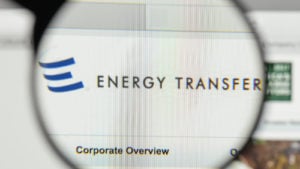Beat the Fed: 3 Rate-Hike Winners to Buy Before Liftoff
It’s often said that baseball is America’s pastime.
But for some investors, Fed watching is the real spectator sport. There’s a tremendous amount of interest and importance placed on every meeting of the Federal Reserve Open Market Committee (FOMC). Three months ago, few investors would have thought their 2024 investment strategy would include choosing rate-hike protected stocks.
However, as we’re already more than a quarter of the way through 2024, the question on many investors’ minds is when, or if, the Federal Reserve will cut interest rates. There’s increasing speculation that the Fed won’t cut at all. Or if they do, it won’t be until right before or after the election.
If that’s the case, you need to position your portfolio with stocks that can offer you the best chance for a positive return. That includes dividend growth stocks, tech stocks with solid balance sheets, and even financial stocks. Here is a group of rate-hike protected stocks with one from each of those categories.
Energy Transfer (ET)

The prospect of rising oil prices has caused many investors to shift some of their portfolios into income-producing energy stocks. And Energy Transfer (NYSE:ET) offers a compelling mix of income to go along with the potential for stock price growth.
Energy Transfer is a midstream company, meaning it’s involved in the transportation and storage of crude oil and natural gas. As InvestorPlace writer Rich Duprey observed in March, the company’s business model includes several customers signed to long-term contracts. That provides Energy Transfer with consistent revenue that’s absent from other energy companies.
And, the predictable revenue improves cash flow and supports the company’s dividend. Notably, Energy Transfer cut its dividend in 2020 but used that as an opportunity to improve the balance sheet. The company has since increased the dividend in each of the last three years and the distribution is now above 2020 levels.
With a P/E ratio of around 13x earnings and a forward P/E of around 10x, ET stock is valued about right when compared to other stocks in the sector.
Microsoft (MSFT)

If you’re looking for rate-hike stocks in the technology sector, you could do a lot worse than Microsoft (NASDAQ:MSFT). The company has delivered a total return to investors of over 63% in the last three years. Also, MSFT increased its dividend for the last 20 consecutive years. And, the dividend growth has averaged over 10% in the past three years.
Through its investment in OpenAI, which includes a 49% stake in ChatGPT, Microsoft will continue to be a leader in the rollout of artificial intelligence (AI) applications. In fact, Dan Ives of Wedbush asserts that Microsoft’s investment in AI is the company’s “iPhone moment.”
That’s a bold statement. But even if it’s not accurate, Microsoft can pull many levers including its cloud-computing business as well as its Xbox gaming platform. Therefore, it’s not hard to understand the reason an impressive 48 out of 57 analysts give MSFT stock a strong buy rating.
Huntington Bancshares (HBAN)

Speaking of stocks that analysts love, Huntington Bancshares (NASDAQ:HBAN) should merit a closer look in terms of rate-hike stocks in the financial sector. In fact, 13 out of 23 analysts give HBAN stock a buy or strong buy rating. And the consensus price target of $15.29 gives the stock an upside of over 17%.
Bank stocks were punished as rates rose. However, even being up 13% in the last 12 months, Huntington Bancshares appears to be undervalued at around 10.9x forward earnings. And an undervalued bank doesn’t necessarily need lower rates to do well. A pause will do.
Moreover, HBAN has operations in eight states throughout the Midwest and less competition in areas in which it operates. Revenue has been growing year-over-year (YOY). But, those higher interest rates have put a damper on earnings.
Nevertheless, this is a time when quality matters. Therefore, for investors looking for growth and value, Huntington and its 4.75% dividend yield is a stock to consider.
On the date of publication, Chris Markoch did not have (either directly or indirectly) any positions in the securities mentioned in this article. The opinions expressed in this article are those of the writer, subject to the InvestorPlace.com Publishing Guidelines.

